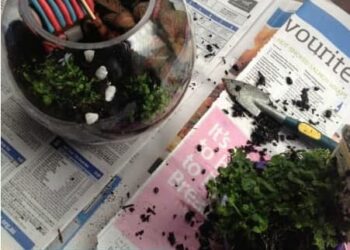WILL NURSERY RHYMES DIE OUT?
It was a worry in 2009 to read about the information gathered by the UK’s Booktrust, in which 2500 people were surveyed. It sparked concern that nursery rhymes could die out despite their educational value and importance to the process of learning to read.

- Only 36% of people surveyed regularly used nursery rhymes with their children
- 25% of people surveyed had never sung a nursery rhyme to their child
- 20% of young parents (under 24) believed that nursery rhymes were not educational
- 33% of young parents said they did not sing nursery rhymes because they were too old-fashioned
These statistics came from a media release sent out by the UK’s Booktrust but you can read more about the survey in the UK Telegraph.
We challenge you to keep nursery rhymes alive.
WHY ARE NURSERY RHYMES SO IMPORTANT?
A child’s first experience with language is an audio one, followed by the spoken language. Exposure to rhymes, and an awareness and knowledge of the sounds that make up words (known as phonological awareness) are essential before a child can learn to read.
Given that children hear and speak language before they can read it means that children are capable of listening to nursery rhymes from a very young age. More importantly nursery rhymes are developmentally appropriate, non-threatening and playful. There can be an incredible amount of fun involved in rhymes (by listening to them, singing them, dancing to them, acting them out and by involving some finger play).
- They assist a child in learning the sounds and sound patterns of the English language (as they use features such as rhyme and alliteration)
- They can increase a child’s vocabulary (what is wrong with knowing ‘old-fashioned’ language anyway?)
- They assist a child in developing listening skills
- Given their repetitious nature, they can be easy to learn and remember
- Many are associated with finger-play which can assist in developing motor skills
- They are fun and relaxed and sometimes even include nonsense words
SO, GET RHYMING. START HERE:
- Listen to nursery rhymes regularly(That’s all we listen to in the car!). Audio C.D.s are available to borrow from local libraries, such as Poems, Songs, Story-times
- Read nursery rhymes regularly. For help, see this list of nursery rhyme books
- The internet is a wonderful source of information
- http://www.rhymes.org.uk/
- http://www.nurseryrhymesonline.com/list-nursery-rhymes.php
- http://www.nursery-rhymes.org/nursery-rhymes/index.html
- Dress up and play the characters in nursery rhymes.
- Get moving. Add actions and finger movements when singing the rhymes.
- Use puppets to enhance the story-telling of nursery rhymes. Fuzzy Creations has a wonderful range.
- Be spontaneous. Sing nursery rhymes wherever and whenever it fits. Nursery rhymes can be heard regularly at swimming lessons.
- Are you game to make up your own rhymes using daily activities as inspiration? The Poems, Songs, Story-times CD gives you some ideas.

SOME BACKGROUND RESEARCH:
There has been much research undertaken in this area. Many researchers commonly note Bryant and his colleagues in their papers:
- Bryant’s research with his colleagues over the years supports the idea that a child’s knowledge of nursery rhymes assists in their development of phonological skills and in turn their success in learning to read.
- These researchers also found that “there is a strong relation between early knowledge of nursery rhymes and success in reading and spelling over the next three years even after differences in social background, I.Q and the children’s phonological skills at the start of the project are taken into account”. Their explanation for this connection is that “knowledge of nursery rhymes enhances children’s phonological sensitivity which in turn helps them to learn to read.”
Bryant PE, Bradley L, Maclean M, Crossland J (1989) ‘Knowledge of Nursery Rhymes, Phonological Skills and Reading’. Journal of Child Language. You can read more about this research.
- Mem Fox in Reading Magic (2005) also cites research that claims that “Experts in literacy and child development have discovered that if children know eight nursery rhymes by heart by the time they’re four years old they’re usually among the best readers by the time they are eight.”
- More recently, Harper (2011) found that “phonological awareness is an important precursor in learning to read” and that “the use of nursery rhymes with young children promotes positive attitudes towards language learning and helps children to build an awareness of sound patterns in language.”
Jarper L.J (2011) ‘Nursery Rhyme Knowledge and Phonological Awareness in Preschool Children’. The Journal of Language and Literacy Education [Online]. Read more about this research.













